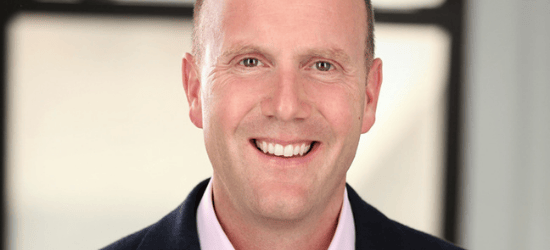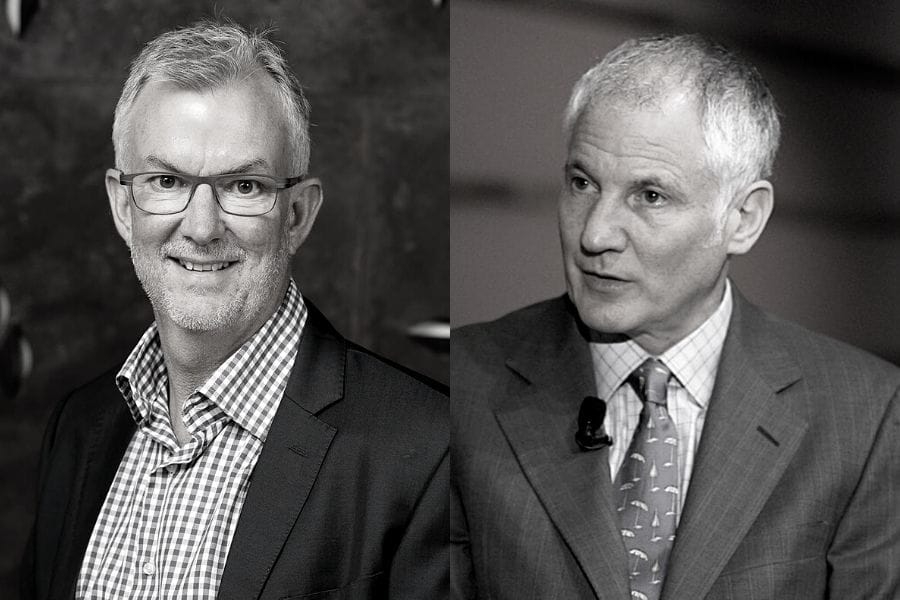The £9.2 billion portfolio managed for the Church Commissioners for England has returned 9.7 per cent over 10 years through a focus on sustainability and a willingness to try things early, such as forestry and venture capital. Amanda White spoke to CIO Tom Joy about where the fund looks for alpha and the need for a non-traditional allocation.
The Church Commissioners of England invests 90 per cent of its portfolio in risk assets and doesn’t own any bonds except for 1 per cent invested in an eclectic emerging market debt portfolio. It counters that aggressive allocation with a 10 per cent allocation to cash which acts as a liquidity buffer.
“Holding nominal assets, which are often viewed as defensive, is a path to wealth destruction,” says the fund’s chief investment officer, Tom Joy. “I’m not a big worrier about inflation but it will be higher so holding nominal assets today is a sure fire way to destroy your wealth, I wouldn’t label them defensive. When people wake up to that fact and yields rise it will lead to capital losses. This comes back to the fragility of markets and the fact that a traditional portfolio won’t meet the needs of investors.”
Instead of a 60:40 the fund looks to enduring diversification which has meant a diverse and long-standing allocation to real assets that includes rural, timberland and strategic land allocations.
In 2020 timberland, which makes up about 5 per cent of the portfolio, returned 41.3 per cent partly due to the sale of a number of forests in Scotland and the US.
“We saw a tremendous increase in valuation last year. We made some sales because investor demand was so big and that was incredibly fruitful,” Joy says.
“We started investing in forestry a decade ago and it’s a core part of the portfolio. With the huge rise in the importance and thinking of the E in ESG and the role that sustainable forestry can play and the rise of the importance of biodiversity, we think that will be the next big leg in thinking about the environment.”
Joy believes the genuine diversification that the real assets portfolio provides – across farmland, forestry, UK residential and strategic land – has been beneficial in the periods where there have been big meltdowns in equities.
“2020 was the 12th year in a row we have delivered positive returns including 2018 when equities were down and other asset classes were negative,” he says. “It sits well with our stakeholders and clients and we have never had to cut distributions. I’m pretty happy with how the portfolio is positioned.”
Private equity and venture capital, which makes up 10 per cent of the portfolio, was also an outstanding contributor to the fund’s return with 33.6 per cent for the year. Nearly half a billion pounds in further private equity commitments were made in 2020 and the fund also committed venture capital to seven managers across 20 funds in the year.
Joy is aware that unlike many other asset classes where manager returns are bunched, the dispersion of manager returns in venture capital is enormous.
“It’s the one asset class where there’s a persistence of returns but you have to be with the best managers. It’s all about securing access to the best managers,” he says.
With that in mind the fund recently hired Michelle Ashworth, who Joy describes as “one of the best investors in venture capital outside of Silicon Valley”, with the purpose of gaining access to the best venture managers.
“She has been tremendously successful at that and we have made good allocations to the best managers who have deployed quite quickly,” he says.
All of the portfolio is managed by external managers and the fund continues to support active management.
In public equities active management was a big contributor to the return of 18 per cent in the asset class verses the index of 13 per cent.
“That wasn’t achieved by avoiding the value space and being long large cap technology, which was the pandemic winners. It was achieved with good balance in the portfolio and we’ve done that over a decade,” Joy says. “Everyone else had given up on active management we think we have a process where we can access good managers.”
The fund employs only a small number of managers it thinks can beat the market over time.
“Over a decade we have delivered 1.5 per cent above the market, compounded over time adds a lot of value,” he says.
Backing best ideas
But perhaps one of the more innovative things Joy and the team have implemented over the past five years, with complete transparency and agreement of its external managers, is a best ideas portfolio.
“We think that managers over-diversify their portfolios and if they just backed their best ideas they would do better. They can’t do that because of career and business risk reasons., so what we have done in agreement with them is we are loading up or buying more of what we strategically believe is their best ideas.”
This best ideas fund, which consists of a small number of best ideas from each fund manager, is managed in an internal systematic process with reduced fees and has been very successful.
“We were always going to do it in a transparent way and if our managers said no we wouldn’t do it. We only put together a small number of best ideas from each manager, less than 10,” he says. “It’s not a huge allocation at the moment (about £100 million), but we do want to grow it, it’s been quite successful.”
Outside of the front office there are a lot of other areas where Church Commissioners seeks to add alpha.
“We have done other things that are more nuanced,” Joy says. “Middle and back office and operations functions can genuinely deliver alpha. If that is a very well-resourced part of your business it can lead to much better control over the custody and legal spend for example.”
Portfolio efficiency also adds alpha, he says, with the fund adding 30 basis points of return at total fund level.
“In 2018-19 I became increasingly aware of the view that markets are fragile, being able to hedge your portfolio was more difficult because of where bond yields were and the 60:40 model was broken,” he says. “I felt markets would be vulnerable because we had a massive growth in algorithmic trading and when volatility hits, that pool of liquidity evaporates and markets are prone to shocks. We looked at how to capitalise on that and protect our portfolio.”
The team decided this was a job better done in-house as tail risk hedging is defined largely by inaction due to the associated fees.
“External managers want to earn their fees so they’re always doing things but 90 per cent of the time you don’t want to be doing anything. Insurance costs you,” he says. “In markets if you’re contrarian you can add incremental return to the portfolio but you have to do it yourself.”
James Barty, a former hedge fund manager and expert in global markets and derivatives, was hired as director of investment strategy and he came to the fund from Bank of America to build models that would give signals to when markets were stretched and prone to a setback. An internal derivative overlay strategy was set up to manage equity risk.
“We do that in a time varying contrarian way and it was quite fortuitous as we were able to add risk in March and April and have added a useful amount of return,” he says. “Because we had invested so much in our operational and backoffice functions we could bring that capability internally and that will be increasingly important for us.”
Responsible investment alpha
Not surprisingly, given its stakeholders, Church Commissioners has an ambition to be at the forefront of responsible investment globally. This ambition has been vindicated with the inclusion in the PRI’s Leaders Group for the past two years.
Joy believes that responsible investment alpha is going to be the “area of the future and the next leg of our journey”, and he continues to invest in building out a team which now consists of seven people – almost as many as in the manager selection team.
“A team of seven dedicated RI professionals is quite a big team but if you have ambition you have to resource it properly,” Joy says.
At the start of 2020 the fund’s head of RI, Edward Mason, left to join Generation Investment Management, considered to be the leading manager in responsible investment and one of the fund’s managers.
Bess Joffe was hired as head of responsible investment and in a sign of the lockdown times Joy is still yet to meet her in person.
“She’s been fantastic and has a wealth of experience working for managers and an asset owner which has been really helpful in looking at what works from an engagement perspective and has given us an advantage.”
The fund has just completed a natural capital baseline assessment across the portfolio and was the first asset owner to sign the taskforce on nature related frameworks.
“That’s the big next discussion and focus on the environment side,” he says.
In 2020 it also joined the net zero asset owner alliance and has just released its target for carbon reductions of 25 per cent by 2025. Last year it also released its impact investing framework measuring the real world impact of its investments.
Through tracking and analysing the portfolio through the real world impact, it can see for example that it has £600 million dedicated to climate solutions.
“The integration of the RI team with the investment team means that the RI team are spotting themes before the investment team sees them from a risk perspective, then we are able to think about what our exposure is and should we make changes. We have come up with ideas that are win win investments, they have good impact and good returns, like energy charging infrastructure. The symbiotic integrated approach is paying dividends.”
Joy says the fund is really focused on making sure all initiatives it is involved in focus on the real world impact.
“We don’t want to lose sight of the fact the critical focus needs to be on real world impact. It’s easy to adjust your carbon footprint via a few sales in your portfolio but selling shares does not make impact in the real world.”




